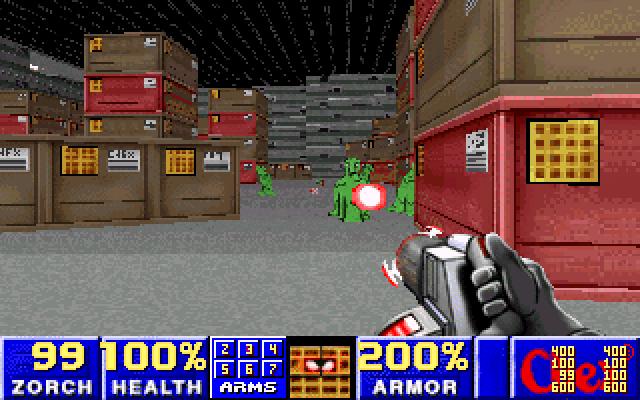Last updated on November 18, 2022
Have you ever thought that maybe something existed when you were a kid, but as an adult you realized that it seems like it could have never really happened? And have you ever decided to look into it to see if maybe, just maybe it actually did exist? Such is the narrative of my recent fascination with a little-remembered cult-video game from 1996: Chex Quest.
I was seven years old in 1996, and my nascent love for video games was clashing slightly with my adult family members’ suspicion of violent video games. This was the ’90s after all, and a media sensationalization of video games‘ inspiring kids to do violent things was in its heyday. And that’s where Chex Quest was different.
Chex quest was, ostensibly, not a violent video game. It was a promotional CD-ROM packed in boxes of Chex cereal, bundled with 50 free hours of access to AOL 3.0. It was a total conversion mod of Doom, perhaps the apex of violent games, and it’s story was relatively similar. You played Chex Warrior, a valiant space hero dispatched to the human colony world Bazoik, a world besieged by the slimy “Flemoids.” So it wasn’t exactly a human-colonized Mars besieged by the legions of Hell, but there’s a similarity I think most people could see.

The main difference, which allowed it to be tenable to parents of kids my age then, was that you didn’t wage bloody, explosive assault against the Flemoids, you simply used your “zorcher” to teleport them back to their home planet. And instead of being ripped apart by Hell-spawn, the Flemoids just flung slime at you, which your Chex-based armor repelled and your scavenging of various breakfast foods healed you from. It was all semantics, but to cautious parents, semantics was all that really mattered.
Of course none of these differences, the intentional differentiation between the violence of Doom and the non-violence of Chex Quest mattered to me. I was just a seven-year-old kid who liked playing video games.

Be First to Comment